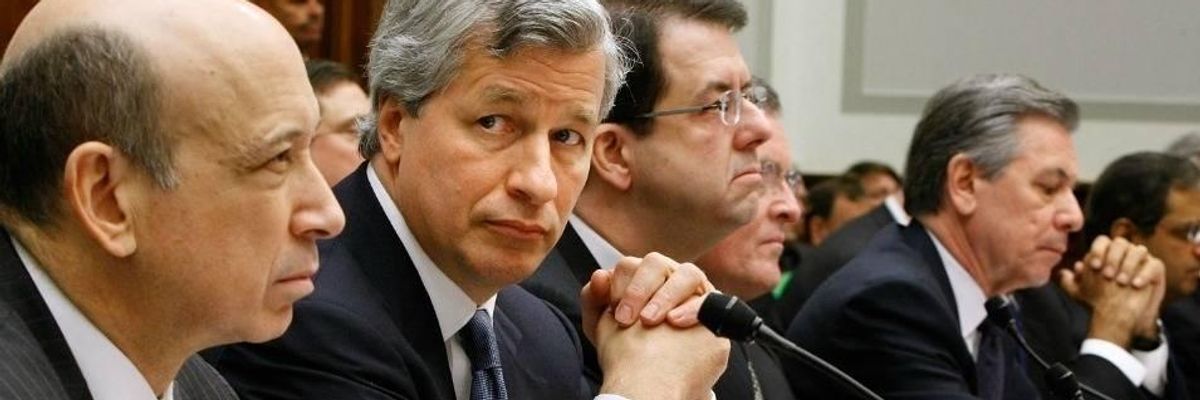Ten years after Wall Street crashed the economy, costing millions of Americans their homes, the jobs and their savings, Wall Street is busily dismantling the safeguards Congress erected to prevent another catastrophe.
This war on regulation, documented in a recent report from the Coalition for Sensible Safeguards, has swept across Congress and the banking regulatory agencies.
"Sweeping attacks on financial and consumer protections won't make America greater. They'll make it crater, setting the stage for the next Wall Street crisis and very likely another round of taxpayer-funded bank bailouts."
These attacks stem from the corrupt connection between Wall Street political spending and compliant lawmakers, and from revolving-door regulators who came from--and may well return to--Wall Street jobs.
Every safeguard that is repealed or withdrawn, every standard that goes unenforced, every executive order that rigs the rules and every dedicated public servant replaced by a corporate ideologue is another payback to a regulated industry - usually one that has spent countless millions, or in Wall Street's case billions, to influence lawmakers and buy special favors.
Here's how Wall Street banks cashed in on their political spending and lobbying dollars over the past two years:
They staffed financial regulatory agencies with Goldman Sachs and other big bank alumni, who then used their positions to back sweeping financial deregulation.
They seated anti-government, anti-consumer radical Mick Mulvaney as the temporary head of the U.S. Consumer Financial Protection Bureau (CFPB) and arranged for one of his loyal foot soldiers, a completely unqualified political hack, to be the next permanent director.
They secured a sweeping retreat in our government's regulatory enforcement, especially enforcement targeting the financial industry, which is needed to deter and punish corporate crime.
They persuaded Congress to use the Congressional Review Act to repeal the CFPB's forced arbitration rule, blocking consumers' access to the courts and allowing banks and credit card companies to rip off customers with impunity.
They pushed half a dozen agencies to commit to weakening the Volcker Rule, which stops banks from recklessly gambling with deposits.
They won a massive tax handout benefitting the ultra-wealthy and big corporations, tens of billions of which went directly into the coffers of the largest Wall Street banks.
And to top it off, they got Congress to pass a major bank deregulation package rolling back important post-crisis reforms that protected consumers, curtailed lending discrimination and increased oversight of the financial system.
These sweeping attacks on financial and consumer protections won't make America greater. They'll make it crater, setting the stage for the next Wall Street crisis and very likely another round of taxpayer-funded bank bailouts.
Polls show that Americans of all political stripes do not want Wall Street safeguards removed, support strong public protections and tough enforcement, and want even stricter rules.
Congress must put real checks on corporate power in Washington and around the country. We need reforms to close the revolving door and rein in regulatory capture - legislation like U.S. Sen. Elizabeth Warren's (D-Mass.) Anti-Corruption and Public Integrity Act.
Major ethics reforms are needed to end the cycle of deregulatory corruption and ensure that lawmakers put Main Street Americans ahead of Wall Street banks.



